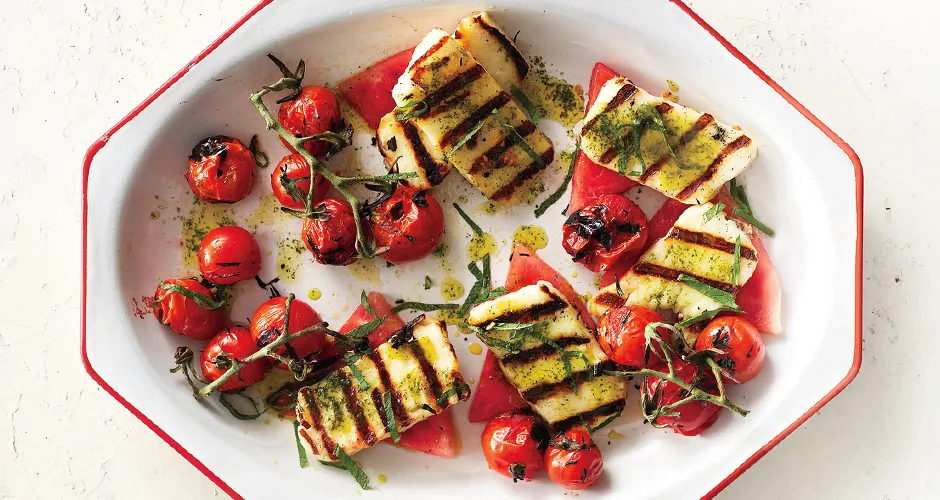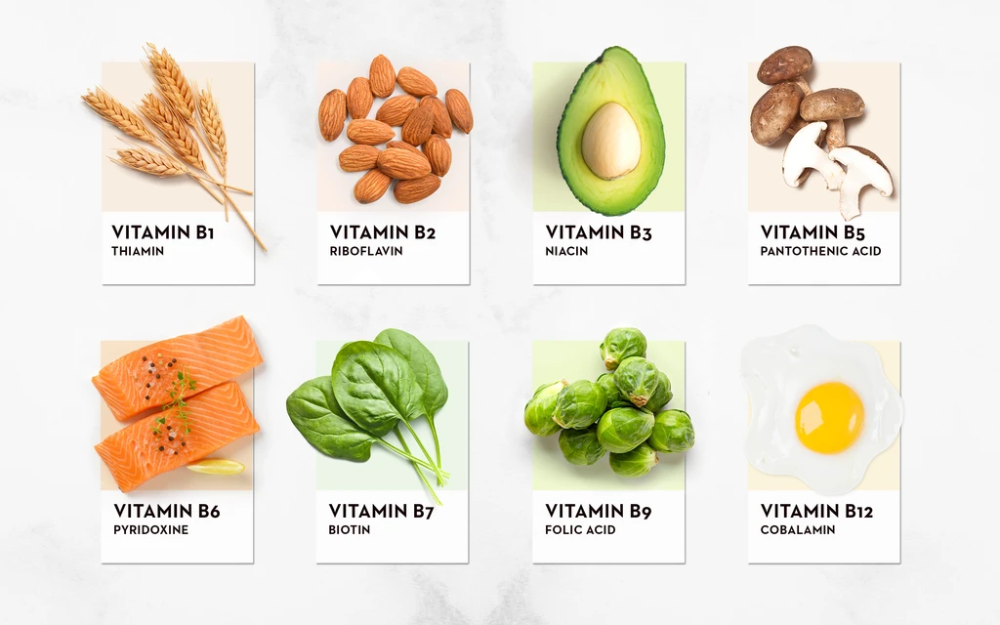Halloumi cheese is a unique and versatile cheese that originates from Cyprus. Known for its distinctive taste, firm texture, and high melting point, halloumi has gained popularity worldwide and is commonly used in various cuisines. In this comprehensive guide, we’ll explore what halloumi cheese is, its nutritional profile, potential health benefits, downsides, how to incorporate it into your diet, and address common questions about this delicious cheese.
What Is Halloumi Cheese?
Halloumi cheese is a semi-hard, unripened cheese traditionally made from a combination of sheep’s and goat’s milk, although cow’s milk may also be used. It has a dense, rubbery texture and a salty flavor that becomes creamy and savory when cooked. Halloumi is unique in that it has a high melting point, making it suitable for grilling, frying, or griddling without losing its shape.
Nutrition Profile of Halloumi Cheese
Halloumi cheese is a good source of several nutrients, including:
- Protein Halloumi is rich in protein, with a typical serving providing around 7-8 grams.
- Calcium:Halloumi is a good source of calcium, an essential mineral for bone health.
- Fat Halloumi contains moderate amounts of fat, primarily from saturated and monounsaturated fats.
- Sodium Halloumi is relatively high in sodium due to its salt content, so it’s essential to consume it in moderation, especially for individuals watching their sodium intake.
Health Benefits of Halloumi Cheese
While halloumi cheese is often enjoyed for its taste and texture, it may also offer some health benefits when consumed as part of a balanced diet:
Protein Source
Halloumi is a rich source of protein, which is essential for muscle repair, growth, and overall health.
Calcium
Halloumi provides calcium, which is vital for bone health, teeth strength, and proper muscle function.
Satiety
The protein and fat content in halloumi can help promote feelings of fullness and satiety, making it a satisfying addition to meals.
Versatility
Halloumi’s unique texture and high melting point make it a versatile ingredient that can be grilled, fried, or baked, adding flavor and texture to a variety of dishes.
Downsides of Halloumi Cheese
Despite its nutritional benefits, halloumi cheese also has some downsides to consider:
High Sodium Content
Halloumi is relatively high in sodium, which can contribute to high blood pressure and other health issues if consumed in excess.
Calorie Dense
Halloumi is calorie-dense due to its protein and fat content, so it’s essential to enjoy it in moderation, especially if you’re watching your calorie intake.
Saturated Fat
Halloumi contains saturated fat, which, when consumed in large amounts, may increase LDL cholesterol levels and contribute to heart disease risk.
Lactose Content
While halloumi is lower in lactose than some other cheeses, it still contains lactose, making it unsuitable for individuals with lactose intolerance.
How to Incorporate Halloumi Cheese Into Your Diet
Halloumi cheese can be enjoyed in various ways, including:
Grilled
Grilling halloumi brings out its savory flavor and creates a crispy exterior. Serve grilled halloumi with vegetables, salads, or as a topping for burgers and sandwiches.
Fried
Pan-frying halloumi creates a golden crust while maintaining its firm texture. Enjoy fried halloumi with eggs, salads, or alongside roasted vegetables.
Baked
Halloumi can be baked or roasted in the oven until golden brown and crispy. Use baked halloumi in pasta dishes, casseroles, or as a topping for pizzas.
Raw
Halloumi can also be enjoyed raw, sliced thinly and served with fresh fruits, olives, and nuts as part of a cheese platter or appetizer.
Frequently Asked Questions (FAQs)
Is halloumi cheese vegetarian?
Yes, halloumi cheese is vegetarian-friendly as it is made from animal milk and does not contain rennet, an enzyme commonly used in cheese production that is derived from the stomach lining of calves.
Is halloumi cheese suitable for a lactose-free diet?
While halloumi cheese is lower in lactose than some other cheeses, it still contains lactose and may not be suitable for individuals with severe lactose intolerance. However, some people with lactose intolerance find that they can tolerate small amounts of halloumi without experiencing symptoms.
Can I freeze halloumi cheese?
Halloumi cheese can be frozen, but it may affect its texture and flavor. Frozen halloumi may become crumbly or lose some of its moisture when thawed. It’s best to consume halloumi fresh or within a few days of purchase for optimal taste and texture.
Is halloumi cheese high in calories?
Yes, halloumi cheese is calorie-dense due to its protein and fat content. A typical serving of halloumi (about 1 ounce or 28 grams) provides around 100-120 calories, depending on the brand and preparation method.
Can I eat halloumi cheese if I have high blood pressure?
While halloumi cheese is relatively high in sodium, it can still be enjoyed in moderation as part of a balanced diet for individuals with high blood pressure. It’s essential to monitor your overall sodium intake and limit other high-sodium foods to help manage blood pressure levels.
Is halloumi cheese suitable for a vegan diet?
No, halloumi cheese is not suitable for a vegan diet as it is made from animal milk. However, there are vegan alternatives available that mimic the taste and texture of halloumi using plant-based ingredients such as tofu or tempeh.
Can I use halloumi cheese as a substitute for other cheeses in recipes?
Yes, halloumi cheese can be used as a substitute for other cheeses in recipes that call for a firm, salty cheese. It’s particularly well-suited for grilling, frying, or baking due to its high melting point and unique texture.
Conclusion
Halloumi cheese is a versatile and delicious cheese that offers several nutritional benefits when consumed in moderation. While it is calorie-dense and relatively high in sodium, halloumi provides protein, calcium, and satiety, making it a satisfying addition to meals. By enjoying halloumi in various preparations, incorporating it into a balanced diet, and being mindful of portion sizes, you can savor the unique taste and texture of this beloved cheese while reaping its potential health benefits. As with any food, moderation is key, so enjoy halloumi cheese as part of a diverse and balanced diet for optimal health and enjoyment.
- Neck Line Filler Treatment Near Elstead, Surrey - June 2, 2025
- Why Gaslighting Is One Of The Most Toxic Behaviors In Relationships - June 2, 2025
- The Dangers Of Fast-Forwarding Relationships And Rushing Intimacy - June 1, 2025




